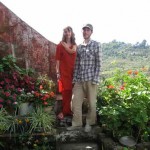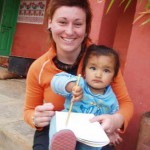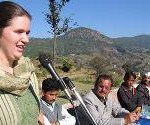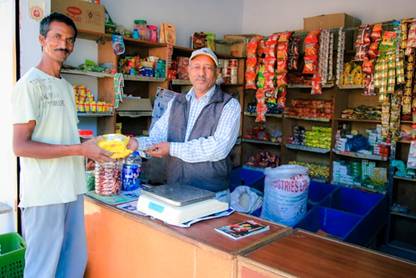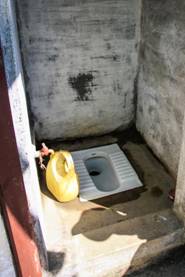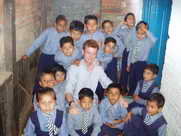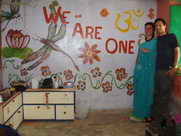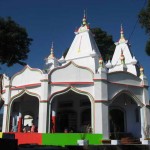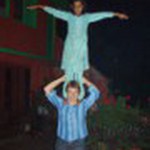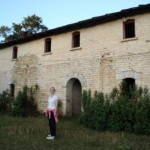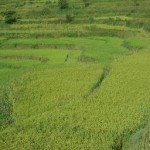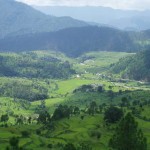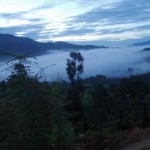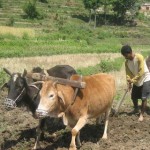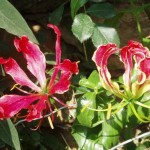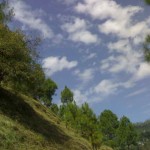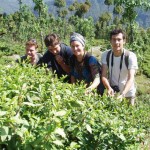All posts by Chander_K
Contact details
Postal address:
Jeevan Verma
R.O.S.E.
Sunargaon, Kanda
Bageshwar-263631
Uttarakhand, India
E-mails:
jlverma.rosekanda@gmail.com
Telephones:
Office: +91-5963-241081
Mobile: +91-9412167186
Past projects
About the area
 Kanda is a remote village in the district of Bageshwar, in the Kumaoni hill range of Uttaranchal, a hilly province of northern India. It is a dispersed settlement cluster of about 30 villages, home to over 20,000 people and is some 86 kilometers from well situated Almora (once the British capital of Kumaon). The Kanda valley settlements have an approximate elevation of 1400- 1800 meters. The people of the area are mainly involved in farming, forestry, horticulture, tea gardening, handicrafts, jewelry, and lately, mining. Soldiering is also in the Kanda blood. Many of its villagers are in the armed forces or live as retirees in the area.
Kanda is a remote village in the district of Bageshwar, in the Kumaoni hill range of Uttaranchal, a hilly province of northern India. It is a dispersed settlement cluster of about 30 villages, home to over 20,000 people and is some 86 kilometers from well situated Almora (once the British capital of Kumaon). The Kanda valley settlements have an approximate elevation of 1400- 1800 meters. The people of the area are mainly involved in farming, forestry, horticulture, tea gardening, handicrafts, jewelry, and lately, mining. Soldiering is also in the Kanda blood. Many of its villagers are in the armed forces or live as retirees in the area.
R.O.S.E. is centered within the Kanda area at a distance of about 500km from Delhi and close to the Nepalese border. You will find your hosts, the Verma family, based in the small village of Sonargaon, a ten minute walk from Kanda market.
 Amidst these terraced hills live the Kumaoni people. Theirs is a beautiful world of fertile soils, richly forested slopes and magnificent Himalayan peaks (including Nanda Devi). The small villages of Kanda share unpolluted air and a healthy environment surrounded by mountain scenery. The landscape is visually appealing as its terraced farming and numerous wild flowers present pleasing shades of color to the eyes. The hills around Kanda offer an unrivaled tranquility.
Amidst these terraced hills live the Kumaoni people. Theirs is a beautiful world of fertile soils, richly forested slopes and magnificent Himalayan peaks (including Nanda Devi). The small villages of Kanda share unpolluted air and a healthy environment surrounded by mountain scenery. The landscape is visually appealing as its terraced farming and numerous wild flowers present pleasing shades of color to the eyes. The hills around Kanda offer an unrivaled tranquility.
The Kanda area is distinct for its rich biodiversity of flora and fauna. It is a paradise for nature lovers, bird watchers and wildlife enthusiasts. The whole Kumaoni area is full of medicinal plants, spices and herbs, many of which grow naturally and are cultivated by the local farmers.
 The people of Kanda are poor. Over 50% of villagers live below the poverty line, lacking even the basics of life such as healthcare, sanitation facilities and adequate shelter. Land holdings are small, as they have been continuously divided among male heirs for several generations. Cow, buffalo, goat, and ox rearing is very popular for meat, milk and the plowing of fields. The dominant religion is Hindu and it is also a way of life. Women do most of the work in the home as well as in the fields while the men labor for the family income. Dependence on natural resources is high and thus resource management is necessary for a balanced and sustainable way of life. Local education and participation are some of the ways of reducing unrestricted dependence on the natural resources, and thus conserving the riches with which nature has endowed this region.
The people of Kanda are poor. Over 50% of villagers live below the poverty line, lacking even the basics of life such as healthcare, sanitation facilities and adequate shelter. Land holdings are small, as they have been continuously divided among male heirs for several generations. Cow, buffalo, goat, and ox rearing is very popular for meat, milk and the plowing of fields. The dominant religion is Hindu and it is also a way of life. Women do most of the work in the home as well as in the fields while the men labor for the family income. Dependence on natural resources is high and thus resource management is necessary for a balanced and sustainable way of life. Local education and participation are some of the ways of reducing unrestricted dependence on the natural resources, and thus conserving the riches with which nature has endowed this region.
Life in Kanda
About Rose
R.O.S.E. (Rural Opportunity for Social Elevation) is a small non-profit organization located in the village of Kanda, Uttarakhand. It’s purpose is to aid in rural development projects and promote awareness through education. It solicits the knowledge and help of Westerners to further its mission.
 R.O.S.E. was pioneered in 1988 as Jeevan Paying Guest Unit (JPGU)Sunargaon and hosted 9 International visitors. On 17th April 1999 JPGU registred under the Paying Guest scheme of U.P.State Government Tourism Department, now we are in Uttarakhand State. Today it is simply known as R.O.S.E
R.O.S.E. was pioneered in 1988 as Jeevan Paying Guest Unit (JPGU)Sunargaon and hosted 9 International visitors. On 17th April 1999 JPGU registred under the Paying Guest scheme of U.P.State Government Tourism Department, now we are in Uttarakhand State. Today it is simply known as R.O.S.E
It works at the grassroots level, appealing to travelers to become active participants in getting involved in and funding projects to develop a better life for the local population as well as themselves. It is the goal of R.O.S.E. to improve the health, education and quality of life of the rural regional poor while maintaining cultural integrity and ecological balance. This goal is actualized through a program which brings tourist participants to Kanda to live with the Verma family, experience local Kumaoni culture and assist physically or financially, in the rural development activites of R.O.S.E.
 Mr. Verma has created an exceptional example of responsible rural tourism that greatly benefits the community and the visitors through genuine, respectful cultural interactions. Mr. Verma’s family has been present in the Kanda region for generations. He therefore has a deep understanding of the social, cultural and environmental issues faced by the local population. Most importantly, he recognizes that these three aspects are interdependent and thus integral parts of a fully sustainable system of living and all activites are approached with this in mind. Some examples of previous activites of R.O.S.E. include the installation of twin-tank latrines, construction of earthquake-proof homes, community educational programs on sanitation and rural employment. Further examples include a community shop, construction of a temple, Eco development, organic farming, micro dairy, poultry rearing and others.
Mr. Verma has created an exceptional example of responsible rural tourism that greatly benefits the community and the visitors through genuine, respectful cultural interactions. Mr. Verma’s family has been present in the Kanda region for generations. He therefore has a deep understanding of the social, cultural and environmental issues faced by the local population. Most importantly, he recognizes that these three aspects are interdependent and thus integral parts of a fully sustainable system of living and all activites are approached with this in mind. Some examples of previous activites of R.O.S.E. include the installation of twin-tank latrines, construction of earthquake-proof homes, community educational programs on sanitation and rural employment. Further examples include a community shop, construction of a temple, Eco development, organic farming, micro dairy, poultry rearing and others.
About the host
Mr Verma
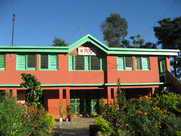 My name is Jeevan Lal Verma, I was born in the village of Sunargaon, which is in the Kanda, Bageshwar District of the Kumoan region in Uttarakhand, North India. I studied in Inter College Kanda, ITI Training Almora and National Apprenticeship at Scooters India limited Lucknow after I had finished my studying and visiting life in the city I decided to do social work within my village. I felt called to social work because I had a helping nature, I had always suffered from a lack of money, but my soul told me to serve the local community. I made it my hobby to connect to the whole of the world, so I participated in many training projects, workshops, visits and conferences by the youth leadership and as a social activist.
My name is Jeevan Lal Verma, I was born in the village of Sunargaon, which is in the Kanda, Bageshwar District of the Kumoan region in Uttarakhand, North India. I studied in Inter College Kanda, ITI Training Almora and National Apprenticeship at Scooters India limited Lucknow after I had finished my studying and visiting life in the city I decided to do social work within my village. I felt called to social work because I had a helping nature, I had always suffered from a lack of money, but my soul told me to serve the local community. I made it my hobby to connect to the whole of the world, so I participated in many training projects, workshops, visits and conferences by the youth leadership and as a social activist.
 It was June 1988 when I participated in a workshop where I met some foreign visitors looking for a host family. August the same year I hosted eight international volunteers from different nations. They participated in 15 days home stay, cultural exchange and social & rural development work camps. That was my first experience and it was very successful. My family and the whole community gave the visitors a warm welcome. The community and youth of Kanda participated and my family was very cooperative with hosting the international volunteers, who adjusted very well to our family life. I felt good because the visiting group were very flexible, civilized and had a good sense of humor. It was a valuable exchange because I learnt some skills and increased my knowledge from them.
It was June 1988 when I participated in a workshop where I met some foreign visitors looking for a host family. August the same year I hosted eight international volunteers from different nations. They participated in 15 days home stay, cultural exchange and social & rural development work camps. That was my first experience and it was very successful. My family and the whole community gave the visitors a warm welcome. The community and youth of Kanda participated and my family was very cooperative with hosting the international volunteers, who adjusted very well to our family life. I felt good because the visiting group were very flexible, civilized and had a good sense of humor. It was a valuable exchange because I learnt some skills and increased my knowledge from them.
I still participate in international seminars, workshops, training programs, fairs and festivals in India and exhibit photographs of the volunteers and village tourism so people are aware of the opportunities we provide.
My family members will also be your hosts. Myself and my wife Hema have six children together. The eldest girl Praveen is married and lives about 45 minutes away – a breathtaking walk through the paddy fields and hills. Jeetendra is my eldest son, Diptee is my second daughter (also married), Renu and Gunga are my other daughters in order of age and Sadju is my youngest son. Jeetendra’s wife also lives with us, as does my grandson Gautam (Praveen’s son).
Current projects
R.O.S.E. Kanda needs continuing support and unfortunately, for unknown reasons, has seen a drop in the number of volunteers in recent years. This has resulted in a lack of funding and resources which has prevented the village from launching any new projects. There are, however, a number of ongoing projects from previous years that volunteers can contribute to.
These include teaching at the local primary school, specifically set up by R.O.S.E Kanda for the poorest families in the village who can’t afford to pay for their education. Children range from 2-8 years old and classes are no more than 20 students, running from 7.30am-midday. Volunteers are encouraged to come and teach the children English songs and games during their play time and join in with English and Maths lessons from 9am onwards.
Whether or not you have a specific project in mind, the Verma family offer the option of a homestay – following the principals of eco-tourism. Here, guests pay a small contribution for the opportunity to experience rural Indian life as an extra member of the family: staying in the family home with authentic family meals and helping out where needed. In order to cover the cost of your stay a monetary contribution is required but compared to many other volunteering programs this is very small for the invaluable experience and the warm welcome you will receive. Furthermore most of this contribution is a means of fundraising for new projects in the village as the living costs are fairly low in the family home.
Alternatively, if volunteers are able to fundraise before they arrive in Kanda they would have the opportunity to carry out a chosen FUTURE PROJECT and see something they are personally interested in develop during their stay. In this case, any extra homestay charge would be overlooked and all donations would go directly to their chosen future project.
Looking towards the future and in particular overcoming its recent fundraising obstacle is currently R.O.S.E. Kanda’s main concern. In this respect, the homestay option (even for the shortest periods of time) is actively encouraged and any donations gratefully received.
Spiritualism
 India has always attracted people seeking spiritual enlightenment. Spiritualism is about being loving, compassionate and caring, not only to others but also towards oneself. It is not religion alone that empowers the pilgrim, although it is deeply ingrained in Hinduism, but is simply the search for bliss, emptiness, joy, ecstasy and a feeling of completeness.
India has always attracted people seeking spiritual enlightenment. Spiritualism is about being loving, compassionate and caring, not only to others but also towards oneself. It is not religion alone that empowers the pilgrim, although it is deeply ingrained in Hinduism, but is simply the search for bliss, emptiness, joy, ecstasy and a feeling of completeness.
The yogis of India bring in people from all around the world. The mental and physical healing power of yoga and meditation has earned a great reputation and the nearby city of Rishikesh is known worldwide as a capital of yoga and meditation.
Uttaranchal with its Himalayan foothills is the perfect environment for a spiritual escape. Yoga and meditation courses, relaxation and even spiritual healing are on offer for those who are interested. The surroundings are ideal to attain self realization.
The Power of Seven Chakras
Wake up Mother Kundalini,
Thou whose nature is Bliss Eternal – the bliss of Brahman,
Thou dwelling like a serpent asleep at the lotus of Muladhara,
Sure affected and distressed am I in body and mind,
Do thou bless me and leave thy place at basic lotus?
Consort of Shiva, the Self-caused Lord of universe,
Do thou take thy upward course through the central canal,
Leaving behind Svadhishthana, Manipura, Anahata, Visuddha And Ajna,
be thou united with Shiva, thy Lord the God,
At Sahasrara – the thousand-petalled lotus in the brain,
Sort there freely,
O Mother,
Giver of Bliss Absolute,
Wake up Mother Kundalini,
Wake up





















